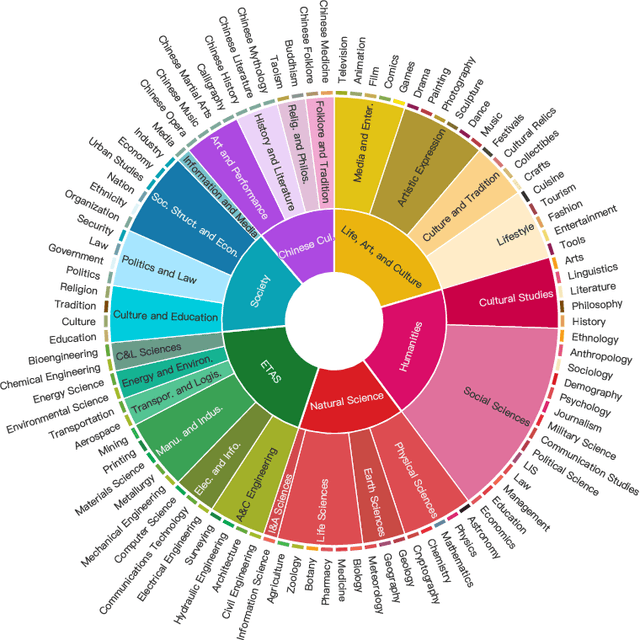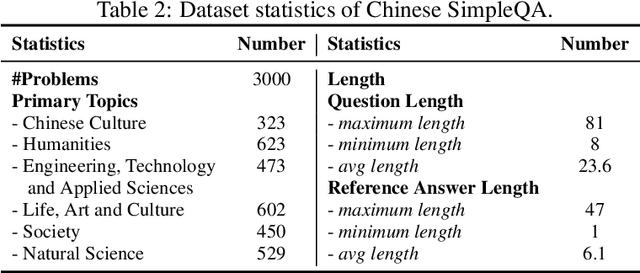Dekai Sun
Chinese SimpleQA: A Chinese Factuality Evaluation for Large Language Models
Nov 13, 2024



Abstract:New LLM evaluation benchmarks are important to align with the rapid development of Large Language Models (LLMs). In this work, we present Chinese SimpleQA, the first comprehensive Chinese benchmark to evaluate the factuality ability of language models to answer short questions, and Chinese SimpleQA mainly has five properties (i.e., Chinese, Diverse, High-quality, Static, Easy-to-evaluate). Specifically, first, we focus on the Chinese language over 6 major topics with 99 diverse subtopics. Second, we conduct a comprehensive quality control process to achieve high-quality questions and answers, where the reference answers are static and cannot be changed over time. Third, following SimpleQA, the questions and answers are very short, and the grading process is easy-to-evaluate based on OpenAI API. Based on Chinese SimpleQA, we perform a comprehensive evaluation on the factuality abilities of existing LLMs. Finally, we hope that Chinese SimpleQA could guide the developers to better understand the Chinese factuality abilities of their models and facilitate the growth of foundation models.
Using Auxiliary Tasks In Multimodal Fusion Of Wav2vec 2.0 And BERT For Multimodal Emotion Recognition
Feb 27, 2023Abstract:The lack of data and the difficulty of multimodal fusion have always been challenges for multimodal emotion recognition (MER). In this paper, we propose to use pretrained models as upstream network, wav2vec 2.0 for audio modality and BERT for text modality, and finetune them in downstream task of MER to cope with the lack of data. For the difficulty of multimodal fusion, we use a K-layer multi-head attention mechanism as a downstream fusion module. Starting from the MER task itself, we design two auxiliary tasks to alleviate the insufficient fusion between modalities and guide the network to capture and align emotion-related features. Compared to the previous state-of-the-art models, we achieve a better performance by 78.42% Weighted Accuracy (WA) and 79.71% Unweighted Accuracy (UA) on the IEMOCAP dataset.
 Add to Chrome
Add to Chrome Add to Firefox
Add to Firefox Add to Edge
Add to Edge